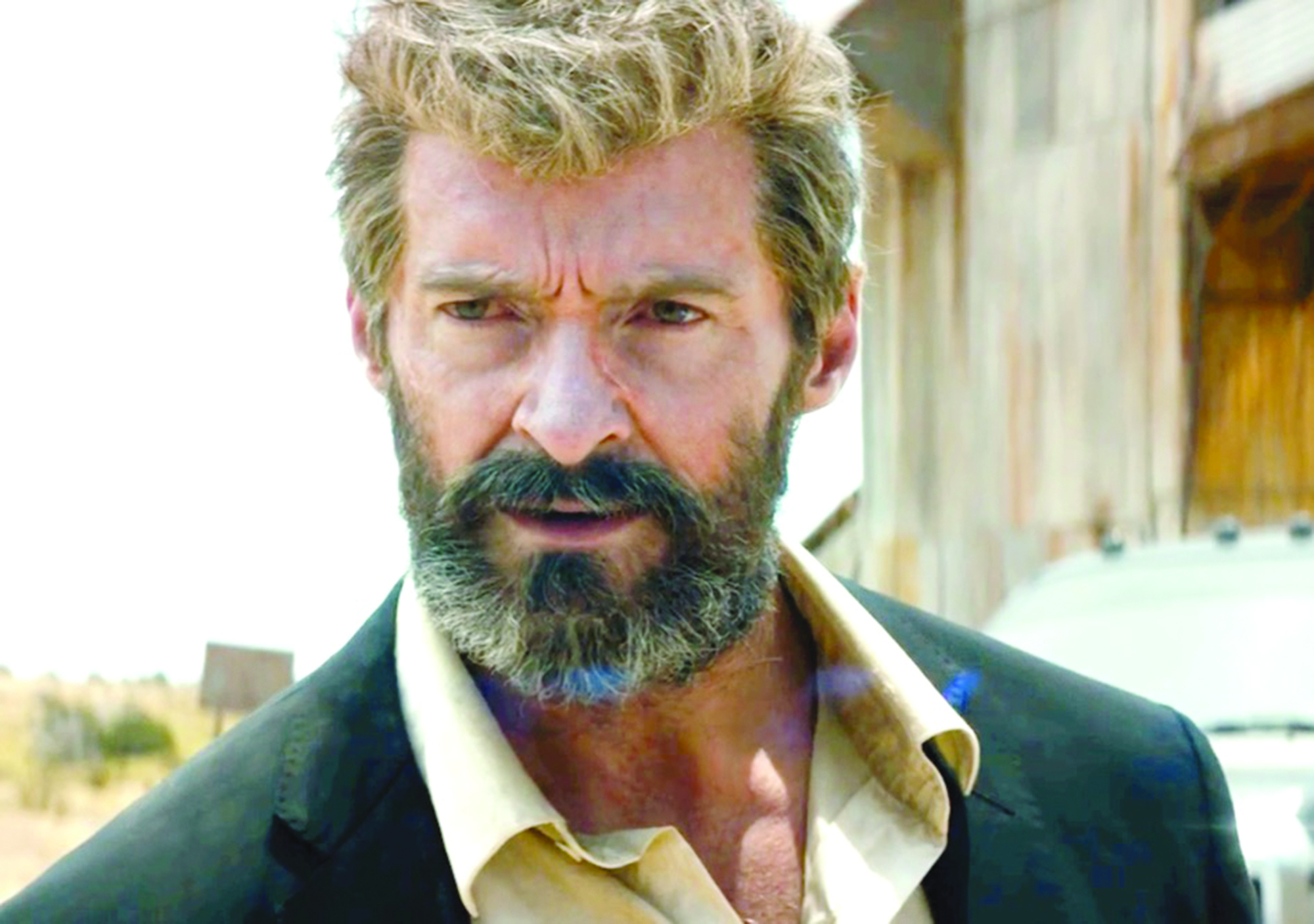By Richard von Busack
It’s 2029 in the film Logan, and the last of the mutants—pale Caliban (Stephen Merchant), Charles Xavier (Patrick Stewart) and the mercenary Logan, aka Wolverine (Hugh Jackman)—are holed up in an abandoned industrial facility in the Mexican desert. Trying to hide from the government and his past, Logan works as a limo driver, taking high school kids to their proms.
A smirking Blackwaterish thug called Donald (Boyd Holbrook) turns up around the same time that Logan is asked for help by a woman tending a special child, Laura (Dafne Keen), who seeks safety in an Eden for mutants. This most meta of the X-Men movies suggests that a clue published in an old X-Men comic book determines the future of mutantkind. But the comics are there for Logan’s contempt, as if he were a Western gunslinger scorning a Ned Buntline dime novel.
The tangy script makes up for director James Mangold’s bent for overemphasis. We glimpse the Statue of Liberty on a sign for a low-class flophouse called the Liberty Motel—we get it, remembering the X-Men’s battle 17 years ago atop the torch. Mangold (Walk the Line) tries to give Jackman’s Logan Johnny Cash–worthy demonstrations of integrity, even ratifying that moral heft with Cash’s “The Man Comes Around.” It usually works, but Mangold leans on the buzzer.
There are worse things than moral seriousness. Logan’s action comes hard and fast, with a savage car pursuit and various skirmishes in an Oklahoma farm and in the Rocky Mountains. There’s magnificent action-movie confidence in the moment where Logan steps into the full force of one of Xavier’s psy-storms, which are strong enough to break windows blocks away. Logan pulls himself to the center of the telepathic hurricane, bracing himself with his claws at every step.
With dignity and grace, Jackman says sayonara to this signature role, and one wonders what will replace it in upcoming X-Men installments.






